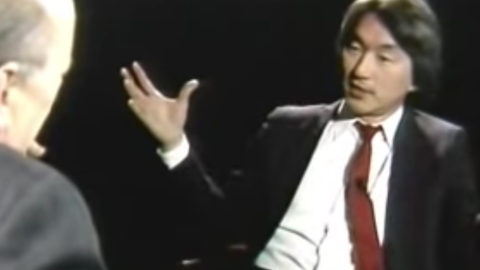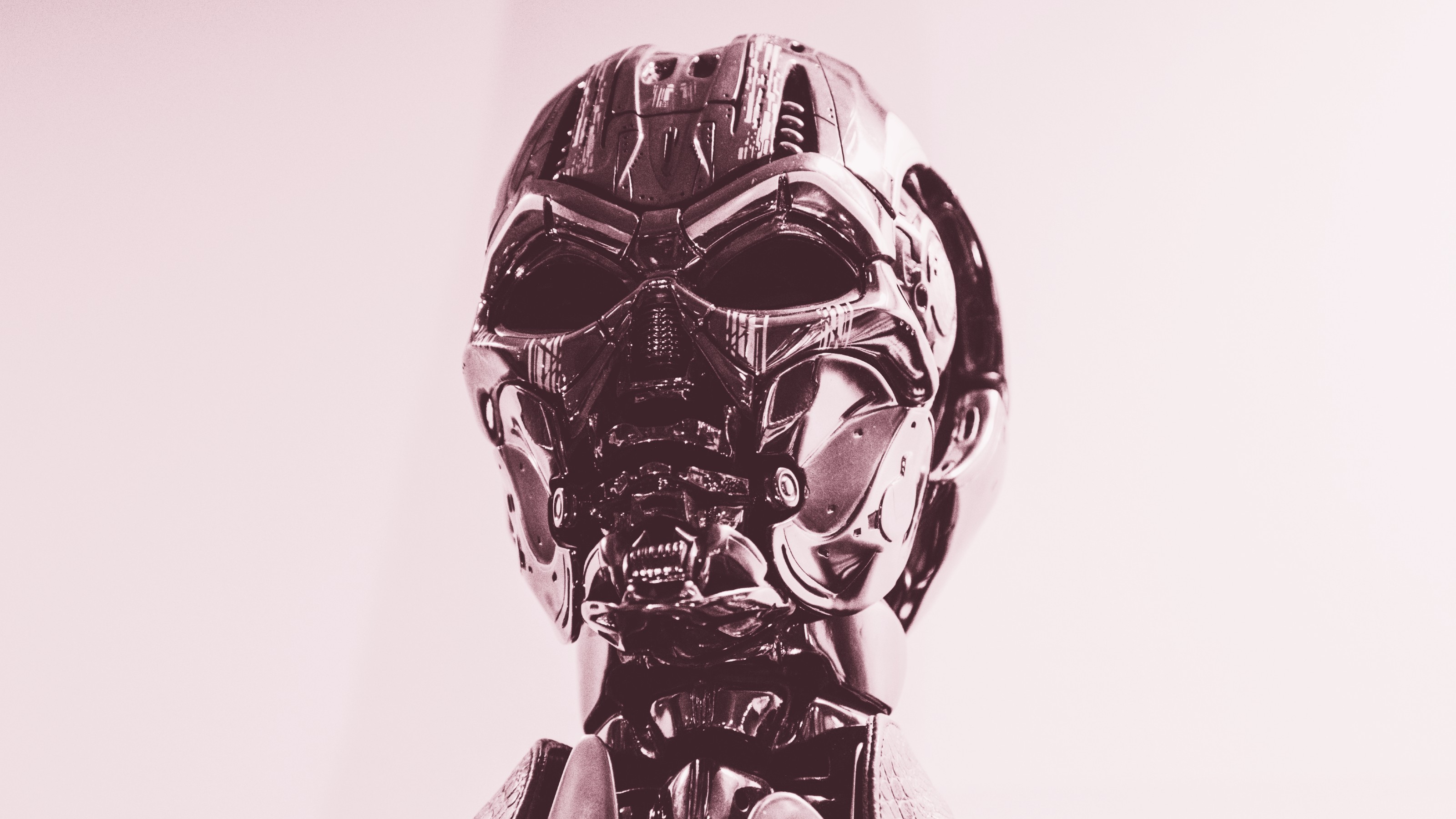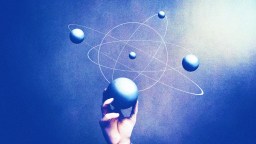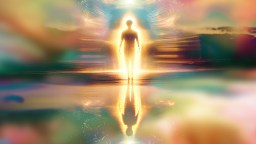Michio Kaku: 5 fascinating moments from this 1991 interview

Harold Channer
- Michio Kaku is a theoretical physicist and renowned science communicator.
- In 1991, he sat down for an hour-long interview in which he discussed climate change, nuclear weapons, human evolution, and more.
- Kaku is a regular contributor to Big Think.
Dr. Michio Kaku is one of the world’s most beloved science communicators, having helped millions of people better understand the nature of the universe and its many mysteries. The 72-year-old physicist has forged an extensive career. In 1974, he co-founded string field theory, which seeks to explain the fundamental interactions using a single model. He’s written four best-selling books. And he hosts a long-running radio show called “Science Fantastic with Michio Kaku”, which is syndicated to dozens of stations across the U.S.
But before becoming a fixture on TV shows on channels like CBS, The Science Channel and countless late-night programs, Kaku appeared on a low-budget program in 1991 to discuss, among other topics, how modern society was affecting the environment. Here are five standout moments from the hour-long interview. (Check out the entire interview below.)
The end of the ice age paved the way for agriculture (and slavery)
The most recent ice age made it nearly impossible for humans to develop sophisticated societies.
“We were almost indistinguishable from animals: the way we lived, the way we foraged for food, the way we hunted,” Kaku said. “We had no civilization to speak of.”
But then everything changed.
“An absolutely stupendous event took place 12,000 years ago. The Ice Age ended. And with the melting of the ice, it meant that humans no longer had to follow the deer, follow the bears. It meant that humans could plant seeds, and, coming back a year later, these seeds would sprout. And with that, agriculture developed.”
Kaku said the development of agriculture was a key turning point in humanity’s evolution.
“With agriculture, it meant that you didn’t have to follow the deer,” he said. “It meant that you could sit down and build a village […] With the coming of villages came cities.”
But the development of large cities also enabled some of the darker sides of humanity to manifest.
“With the coming of cities came the division of labor, and with the division of labor came, unfortunately, slavery, where humans subjugated other humans. You can’t have slavery when you are in bands of only 10 people foraging for deer. You can have slavery if your population develops to 10,000 [or] 20,000.”
Excerpt starts around 16 minutes into the interview.
Kaku predicts climate change by 2030
Global warming allowed humans to develop civilization, but its “catastrophic effects” might also destroy it, Kaku said in 1991.
“The question is: Now that we are heating up the atmosphere with carbon dioxide, the latest projections that I’ve seen is that, early in the next century, we will heat the atmosphere to perhaps 4 to 9 degrees [measured against 1980] because of carbon dioxide being pumped into the atmosphere.”
The Intergovernmental Panel on Climate Change predicts that global warming “is likely to reach 1.5°C between 2030 and 2052 if it continues to increase at the current rate.”
19:15
Kaku talks nuking the South Pole
What’s a relatively straightforward way to transform global ecosystems and potentially end humanity as we know it?
“All you have to do is put our nuclear arsenal on the South Pole and detonate the South Pole, and melt it. We have the capability of altering the entire eco-structure of the planet with our hydrogen bombs.”
Of course, Kaku wasn’t suggesting people do such a thing. Rather, he was highlighting the precarity of the nuclear age: At any moment, one person with a bomb could, theoretically, transform the entire world.
21:10
Kaku talks about the possibility of extinct alien civilizations
After discussing the perils of nuclear weapons, Kaku noted that all civilizations throughout the universe would eventually come to a crossroads when they discover uranium.
“If the work of Frank Drake is correct, it means, potentially, there could be thousands of dead planets out there that did not negotiate pollution — global pollution, like the greenhouse effect, and the global pollution, like the depletion of the ozone layer — and did not negotiate the question of nuclear weapons.”
Kaku also said that it’s possible that humans are an “evolutionary dead-end,” if we fail to properly manage technological advances.
25:30
The main obstacle in curbing climate change
When asked whether humans have the capability to mitigate the effects of climate change, Kaku said yes, but it all comes down to the “almighty dollar.”
“We have the means, we don’t have the will,” he said. “Unfortunately, it’s like a driver driving in a car, getting all of a sudden very sleepy, and it takes a near-miss to wake up that person. That’s civilization. Civilization is falling asleep when it comes to […] the catastrophic depletion of the ozone layer, and the greenhouse effect. And it may take a near-miss. The problem is that, even after we wake up, it may be too late.”
Kaku later noted that former President George H. W. Bush was the president of an oil company.
“The problem is that the engine of the industrial revolution has been profits,” Kaku said. “There’s no profit to be made to restrict the ozone layer. There’s no profit to be made to restrict the greenhouse effect…Oilmen like the greenhouse effect, because the greenhouse effect is called by oil.”
49:30





